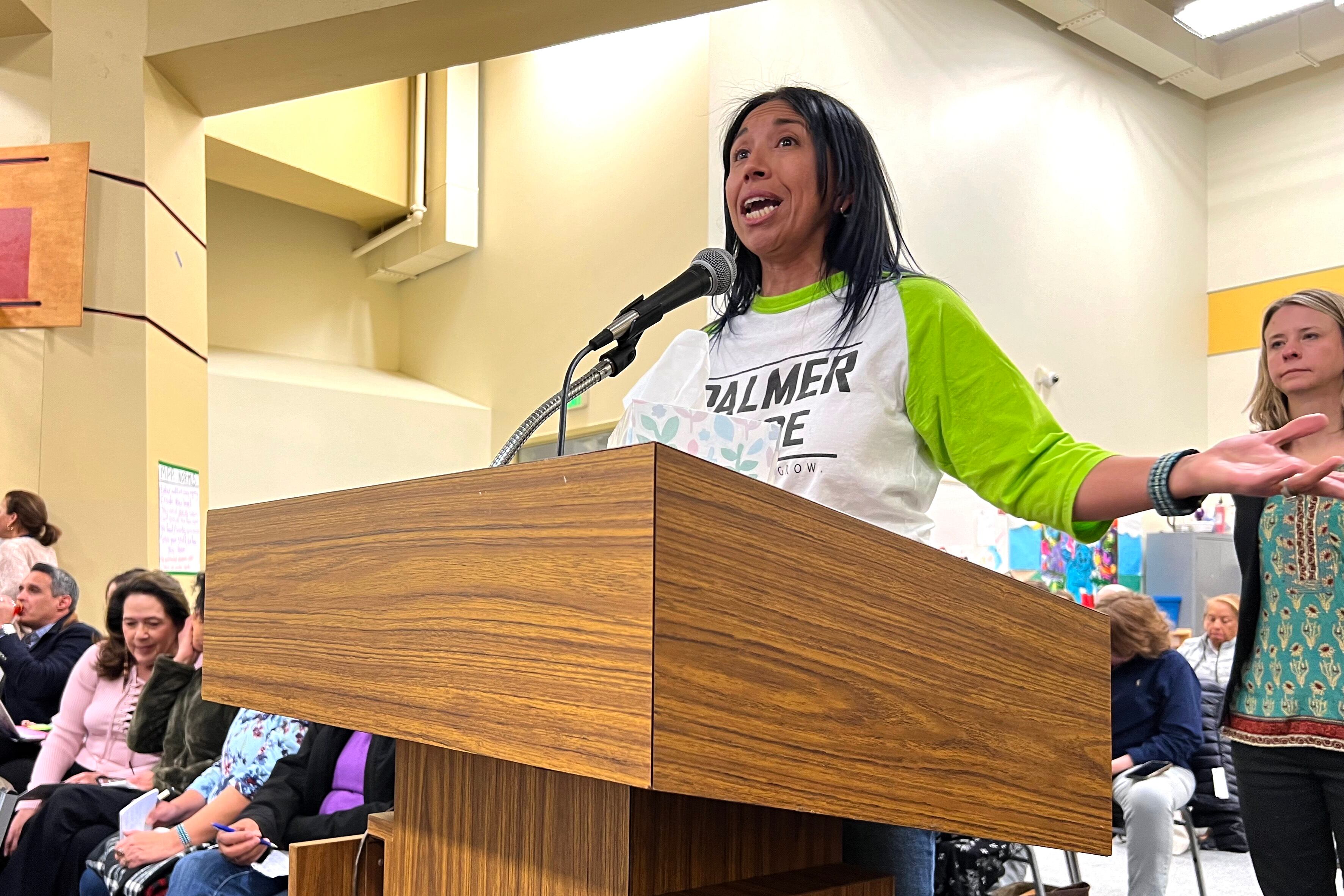Sign up for Chalkbeat Colorado’s free daily newsletter to get the latest reporting from us, plus curated news from other Colorado outlets, delivered to your inbox.
Using terms like “illogical,” “unethical,” and “half-baked,” frustrated parents and students made their final cases Monday to Denver school board members who will vote later this week on whether to close 10 schools with low enrollment.
While the public comment session was open to all 10 school communities, most speakers pleaded with the board on behalf of Palmer Elementary, which was spared from closure two years ago only to be at risk again, and Denver Center for International Studies, which would lose its high school grades under a recommendation from Superintendent Alex Marrero.
“Our school is worth more than a couple hundred thousand dollars,” a DCIS senior named Kennah told the board, referencing the amount of money the school district would save by downsizing DCIS. “You can’t place a price on our community.”
Marrero recommended the school closures to address declining enrollment in Denver Public Schools. While an influx of migrant students has boosted student counts for the past two years, district officials said it’s not enough to offset a larger downward trend. They have predicted the 90,000-student district will shrink 9% by the 2028-29 school year.
The school board is set to vote on Marrero’s recommendation on Thursday. Board members spent last week visiting each of the 10 schools, listening to students, parents, and teachers express anger, frustration, and sadness at the proposal.
Castro Elementary, Columbian Elementary, Denver School of Innovation and Sustainable Design, International Academy of Denver at Harrington, Palmer Elementary, Schmitt Elementary, and West Middle School would close if the board votes yes.
Kunsmiller Creative Arts Academy, Dora Moore ECE-8 School, and Denver Center for International Studies would partially close, with each school losing some grades. The board does not have to vote on the partial closures; Marrero can enact those on his own.
The plan would save the district $6.6 million, officials said. Marrero and others have also said that closing small schools would boost opportunities for students. Because Denver funds its schools per student, schools with low enrollment struggle to afford as many teachers and electives. The district is providing more than $3.8 million in subsidies to the 10 schools this year.
But families at the 10 schools don’t see the schools as lacking. All last week and Monday night, they spoke about their schools as supportive communities with dedicated staff and programming that meets their children’s needs. Many used the word “family” to describe their schools.
“Palmer is not just a school, it’s a family,” a fifth-grader named Tucker told the board Monday. “And I don’t want that family to end.”
Karl Schuch said his young son came home last Friday from Palmer, where the kindergarteners were talking amongst themselves about the proposal, “and cried on the couch. He was in the fetal position on the couch, by himself, and sobbing about the school closing.”
Others described the proposed closures as discriminatory, inequitable, and “classist.” As in the past, the closures would disproportionately affect students from low-income families and students of color. About 75% of Denver students are students of color, and seven of the 10 schools up for closure or partial closure exceed that district average.
Three of the schools — Palmer Elementary, Denver School of Innovation and Sustainable Design, and Dora Moore ECE-8 School — serve more white students than the district average.
The board also heard pushback against the plan for Palmer students if the school closes. Marerro has proposed creating a new enrollment zone, which is a large boundary that contains several schools. Families who live in enrollment zones must choose from the schools in the zone. In Palmer’s case, the new zone would include six elementary schools.
Parents from two of those elementary schools — Teller and Carson — told the board that a new enrollment zone would erode the close-knit nature of their neighborhood schools and further crowd their classrooms, which are already at capacity.
“You owe it to us to understand the full impact of these changes,” said Teller parent Jennifer Swartwout.
Melanie Asmar is the bureau chief for Chalkbeat Colorado. Contact Melanie at masmar@chalkbeat.org.






